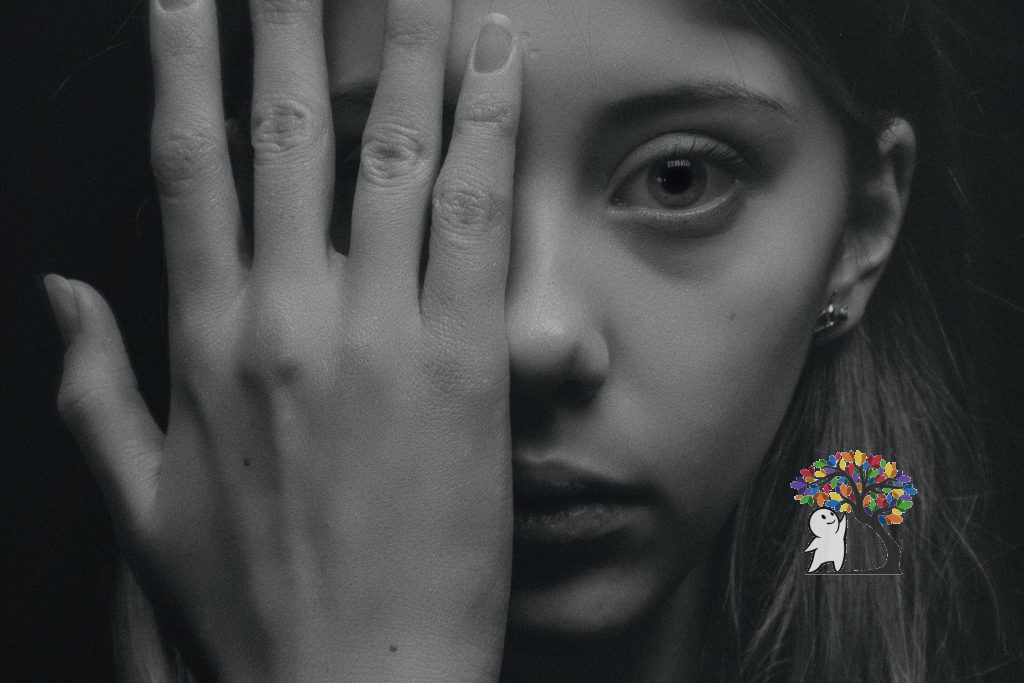Mental Illness Recovery Series: Story # 88

Heather was born in Illinois and now lives with her husband in the Tampa Bay area. She loves to write, Heather said, “I have coauthored a post-apocalyptic book with my husband and I am currently working on writing an epic science fiction book.” Five years from now she would like to work as a social worker with children who have disabilities or have a history of trauma, or with adults with disabilities and mental illnesses.
Heather was diagnosed with and still battles with schizoaffective disorder, post-traumatic stress disorder (PTSD) and learning disabilities. She believes her mental disorders were caused by different situations. Heather said, “With the schizoaffective disorder, it’s been suggested to me that my father who died when I was 7 was schizophrenic, so genes may have played a part. I also have a family history of learning disabilities, so there is a high genetic component there. The PTSD was caused by repeated childhood abuse, physical, psychological and sexual in nature.”
Heather wasn’t diagnosed until she was in college and living with her husband. She said, “I received accommodations for my learning disability (dyscalculia) and for PTSD symptoms that were very useful. I could not have graduated with my Bachelor’s degree in Anthropology without them. For Schizoaffective disorder, we are still searching for the right combination of medicines. I’m currently taking: Wellbutrin, Effexor, Zyprexa and Seroquel. I also have intensive therapy twice a week.”
She also struggled with many symptoms. Her dyscalculia, did not allow her to compute mathematical problems in her head. She frequently confuse the signs of problems, and is unable to read an analog clock, cannot make change, and cannot read a bus schedule. Her PTSD gave her an intense fear of crossing the street, driving, motorcycles, large trucks, vans, toy rains and several songs. Her schizoaffective disorder provoked paranoid delusions, delusions of reference, auditory hallucinations, tactile hallucinations, disorganized speech and thoughts.

Heather’s life became immensely affected, her PTSD made her feel terrified. She said, “The PTSD made me jumpy and easily startled and afraid of having people walking behind me, as well as an inability to drive or cross streets by myself. It means that I spend most of my time at home, avoiding triggers. My schizoaffective disorder makes me very paranoid and untrusting. I commonly think that there are cameras in my home, that helicopters in the area due to the close by airport is there to follow and spy on me. I often think that I am being experimented on by the government and they are using listening devices and special mind control drugs to keep tabs on me.”
When Heather was 18, she was very depressed and afraid. She said, “I was convinced that the college I was attending was being inhabited by malevolent spirits and demons after my aunt and uncle told me that the nuns on campus were worshiping the devil. I felt trapped and scared and attempted suicide. My friends on campus intervened, saving my life and flushing my pain pills.” This also affected her relationship with others. After Heather’s suicide attempt, her friends grew distant immediately after.
Because of this she felt sad and lonely. Heather felt like she had no one other than an abusive family to turn to. The turning point in her life was getting away from her abusive family and moving over a thousand miles away to South Florida with her soon to be Husband. She said, “The second turning point occurred after I reenrolled in College and sought help for my mental health. I was soon after diagnosed and was given accommodations to use in quizzes, tests, exams, group activities and when taking notes in class. I wouldn’t have been able to graduate in spring 2014 without my accommodations and the support of my husband and my little sister.”
Heather used lots of therapy, medication and support from the people in her life. She also vowed to prove the abusers and naysayers wrong by excelling. She said, “When I graduated with a 3.5 GPA in Anthropology, it was a huge accomplishment that took every ounce of determination and anger at my abusers focused to completing college.” Her therapist gave her numerous exercises and tools and her psychiatrists provided medication. While her husband, little sister and friend that she met online provided their unconditional love and support.
This is the lesson heather learned:
“With the right support and accommodations any goal is possible for those of us with schizoaffective disorder.”
This ordeal has changed Heather’s outlook in life. She became more positive and began to be able to encourage others which makes her genuinely happy. In order to prevent this from happening again, she keeps taking her medications, even if her symptoms have gone away. She goes to therapy and keeps up with her friends and family. She also creates smalls goals to achieve each day.
This is Heather’s advice:
“Don’t give up. There is hope. Read about others who have our mental conditions and see for yourself. This pain is not permanent.”
Help me make a difference by sharing your story. If you or anyone you know needs a safe place to vent out and recieve advice feel free to become a member of the Mental Illness Recovery Series Group on Facebook.




Responses